


















NIL It's a new game for lawyers and college athletes PAGE 4 SEPTEMBER 2023 | nclawyersweekly.com VOLUME 35 NUMBER 9 IN DIGITAL. IN PRINT. IN PERSON. Expertly Focused On Today’s Legal Professional. WEEKLY 5 QUESTIONS WITH Jan E. Pritchett PAGE 9 PROFILE Counsel’s focus firmly set on reproductive rights PAGE 8
•
•
•










































LIABILITY INSURANCE COMPANY OF NORTH CAROLINA LAWYER S MU TUAL 919.677.8900 800.662.8843 www.lawyersmutualnc.com NEW INSURED BENEFITS. ADDED VALUE .
New and improved ways to manage your policy and easily get the documents you need.
Pay your bill online
Download a Declaration Page
Get confirmation of insurance
Make policy changes
LM PORTAL
•
•
•
•
Add attorneys and remove attorneys
Now available on your smartphone
LM APP
All the conveniences of the portal - on the go!
Manage your account and make changes to your policy in a convenient app format
Download the app on your iPhone or Android device – Lawyers Mutual NC in the app store ON DEMAND CLE Get CLE when and where you want!
Get CLE hours on your time, and wherever you want
FREE for Insured attorneys and paralegals/staff
Choose the topics relevant to your practice Visit WWW.LAWYERSMUTUALNC.COM to learn more and start using your new insured benefits.
•
•
•
•
IN PRINT. IN DIGITAL. IN PERSON. Expertly Focused On Today’s Legal Professional.
130 North McDowell Street, Unit B, Charlotte, NC 28204 (704) 377-6221 • FAX(704) 377-4258
E-mail: service@bridgetowermedia.com • Circulation: 1-877-615-9536
Managing Director/Publisher
Susan A. Bocamazo, Esq., sbocamazo@lawyersweekly.com
n EDITORIAL Editor
Ross Chandler rchandler@lawyersweekly.com
Digital Media Manager
Scott Baughman sbaughman@mecktimes.com
n CIRCULATION 1-877-615-9536 service@bridgetowermedia.com
n ADVERTISING
Advertising Account Executive
Sheila Batie-Jones sbatie-jones@nclawyersweekly.com
CONTENTS
COVER STORY
p4 | NIL: Lawyers find new clients among college athletes
PROFILE
p8 | Counsel keeps up the fight for reproductive rights
5 QUESTIONS
p9 | Chairman makes case for specialization credentials
VERDICTS & SETTLEMENTS
n ACCOUNTING & ADMINISTRATIVE
Business Manager
Kelly Olson kolson@bridgetowermedia.com
n ART & PRODUCTION
Creative Director
Melanie Bingham
Project Management
Jordan Mazuranic
Production Specialist
John Reno Director of Production Services
Bradley Redmond
WWW. NCLAWYERSWEEKLY.COM
NCLAWYERSWEEKLY
North Carolina Lawyers Weekly [ISSN10411747] [USPS 002-904] is published Monthly with General Statewide Circulation by North Carolina Lawyers Weekly, 130 North McDowell Street, Unit B, Charlotte, NC 28204
Periodicals postage paid at Charlotte, North Carolina 28228-9998.
POSTMASTER - Electronic Service
Requested. Send address changes to: North Carolina Lawyers Weekly,
Subscription Services, P.O. Box 1051, Williamsport, PA, 17703-9940
To place orders, temporarily stop service, change your address or inquire about billing: Phone: (877) 615-9536
Email: service@bridgetowermedia.com
To submit subscription payments, mail: Subscription Services P.O. Box 1051 Williamsport PA 17703-9940
©2023 BridgeTower Media. Material published in North Carolina Lawyers Weekly is compiled at substantial expense and is for the sole and exclusive use of purchasers and subscribers. The material may not be republished, resold, recorded, or used in any manner, in whole or in part, without the publisher’s explicit consent. Any infringement will be subject to legal redress.
BridgeTower OpCo, LLC d/b/a North Carolina Lawyers Weekly Media is an equal opportunity employer.
p19 | The latest roundup of North Carolina legal cases.
LAWYERS IN THE NEWS
p21 | New associations, promotions and honors.
COMMENTARY
p23 | Firm guides city through removal of elected official
COMMENTARY
p24 | N.C. Supreme Court Justice Trey Allen shares his thoughts with Troy Shelton
CAROLINA PARALEGAL NEWS
p26 | AI finds role in education, legal work
It’s the season when many lawyers pack up their families and head to college — not only to visit a child studying there but also to enjoy an afternoon or evening of football.
But this year’s game has taken a different turn. Lawyers won’t be watching just touchdowns and interceptions on the field; they’ll also be looking at prospective clients. As Heath Hamacher reports in this month’s cover story, football players and their peers on other sports squads can now monetize their name, image and likeness, a concept summed up as “NIL,” and lawyers will lead them through doing so.
The details are in Heath’s story, and I’ll let you find them there. The point I want to make is that Heath’s reporting is what this magazine wants to emphasize — stories that will help you better serve your clients and grow your practice. Our reports seek to answer and explain what is new, what has changed, and what are the potential challenges and rewards of selected issues that lawyers face.
That’s not to say the magazine will take on the dry tone of a law review or policy journal. We still want to make sure you know who has joined which firm or earned a promotion (see the Lawyers in the Law feature), who has won a verdict in That Big Case (Verdicts & Settlements), and who has an idea or a success that merits a stand-alone story (Five Questions With …). The goal is that the magazine will be equally informative, interesting and engaging.
Share your ideas for possible stories with Editor Ross Chandler at rchandler@lawyersweekly.com.
COVER PHOTO: DEPOSITPHOTOS.COM

NORTH CAROLINA LAWYERS WEEKLY | SEPTEMBER 2023 3
NEWS LETTER FROM THE EDITOR
Chandler
Two years after the U.S. Supreme Court decided that college athletes can be compensated for the use of their "name, image and likeness," lawyers who handle NIL cases are still defining the specifics of practicing in that field.
NIL law effectively became a field of practice after the court’s unanimous decision in NCAA v. Alston. The 2021 case noted the “highly profitable” and “professional” nature of college athletics, particularly basketball and football.
The decision was much to the chagrin of the NCAA, which has long pointed to “amateurism” — a term inconsistently defined by the organization — in contending that paying student-athletes could erode the distinction between collegiate and pro-
NIL law changes face of college athletics
fessional sports. As the high court noted, American colleges and universities have always “had a complicated relationship with sports and money.”

The Supreme Court’s ruling in no way addresses every associated issue — courts are also considering whether student-athletes are employees, for example — but did find that NCAA rules limiting education-related compensation violate the Sherman Antitrust Act.


Attorneys are clear that despite the nuances associated with new NIL regulations and law, it is not a new area of law, per se.
“I feel like it ties into so many different areas of law,” said Jessica Visser, a partner with Varnum in Grand Rapids, Michigan, who co-chairs the firm’s NIL practice. “IP (intellectual
property) attorneys are definitely important in this space, contract attorneys. … If you’re representing student-athletes, I would say a trust and estates attorney would be a really good person to contact. … I think it’s really very unique and doesn’t fit neatly into any other existing area of law.”
Michael Rueda, partner and head of U.S. sports and entertainment at Withersworldwide in New York, agreed, saying he gets a little suspect when he hears someone refer to themselves as a “NIL lawyer.”

4 SEPTEMBER 2023 | NORTH CAROLINA LAWYERS WEEKLY NEWS COVER STORY
B y h eaTh h amacheR
Rueda
Depositphotos.com
Changes in state laws and NCAA rules have shifted the emphasis to ‘athlete’ in the once-hallowed phrase ‘student-athlete’ under emerging name, image and likeness law.
“That’s not really a thing. … There are different elements to every deal,” Rueda said. “It’s highly dependent on how a deal is structured. … It’s an intersection of contract law, intellectual property law. … It can involve other things such as forming new entities. Securities laws could be at play. You could be an IP lawyer, a corporate lawyer, a commercial lawyer; there are different elements to every deal.”
In other words, there are no new principles at work in NIL law, only a difference in application.
NIL defined
Once upon a time, student-athletes were not allowed to accept even a dollar for their autograph or an appearance. Today, while many NIL deals are for nominal amounts of money or goods, upper-tier athletes can make hundreds of thousands of dollars. In the United States, “NIL rights” is a slang term for the right of publicity, which prevents the unauthorized commercial use of an individual’s name, image, likeness or other recognizable aspects of his or her persona. It bestows the exclusive right to the individual to license the use of identity for commercial purposes. These rules allow student-athletes to profit from their personal brands through certain services and products using social media, personal appearances, sponsorships, autographs and endorsements, among other avenues.
As Rueda put it, NIL is not a novel concept, simply “the right for an individual, in this case, a college athlete, to monetize their publicity rights.”
Payments authorized
After the Alston decision, the NCAA enacted an interim NIL policy allowing student-athletes to be compensated. Today, Rueda said, that guidance is loose.
“It sort of punts a lot of rulemaking authority and control over the situation to individual schools and confer-
ences and states,” he said. “It allows for more disparity among the rules, and the lack of consistency could lead to problems. That’s why initiatives are being pushed in Congress for more comprehensive rules, which I think is challenging.”
So far, more than a dozen bills have been proposed, but none has so much as received a debate among a full Senate or House committee, the initial step in the process of becoming law. William Palmer of Kaufman & Canoles in Norfolk, Virginia, said that the push for legislation is important because the lack of uniformity across states has created problems for multistate entities such as collegiate conferences and NCAA enforcement efforts.
“A few bills were recently introduced in July,” Palmer said. “It is unclear if, and in what form, they will survive, but most authorities think it is just a matter of time before Congress passes something addressing NIL.”
Before college student-athletes could profit from their NIL, Curry Sexton was an all-Big 12 wide receiver at Kansas State University. Today, he is an attorney with Seigfreid Bingham in Kansas City, Missouri, who works heavily with Division II conferences and institutions, providing them with valuable insight into NIL practices.

Sexton called the NCAA’s interim policy a bare-bones one that essentially prohibits two things: being paid to play for a school or receiving financial incentives to sign with or remain at a school. While some states, such as Kansas, have no NIL laws, others, including Missouri, make concerted efforts to pass the most progressive laws.
“The NCAA has indicated that they
may implement some more extensive NIL laws in the near future, while at the same time making a strong push for uniform federal NIL legislation,” Sexton said. “Despite several federal NIL deals being presented over the last two years, federal legislation doesn’t appear to be on the immediate horizon.”
To date, more than 30 states have enacted laws. They include South Carolina, where Attorney General Alan Wilson said in 2021 that the state’s legislation on NIL “… ensures fairness to our athletes, which is a very good thing. The law should immediately go into effect. This law provides guardrails to protect student-athletes so they can benefit financially without being taken advantage of.”
In North Carolina, Gov. Roy Cooper issued a three-page executive order one day after the NCAA rule change went into effect. He noted in part that allowing student-athletes to receive compensation for their NIL will be particularly beneficial to student-athletes of color, helping “alleviate racial inequity in intercollegiate sports” and “prevent the State of North Carolina from being at a competitive disadvantage in regard to enrollment at postsecondary educational institutions within the state.”
Playing their position
At Withersworldwide, Rueda’s sports and entertainment practice focuses on advising athletes, entertainers, influencers and artists on issues such as brand management, contracts and investments.
“These types of deals are things we do all the time,” Rueda said. “When it became possible for student-athletes to exploit their own rights, my biggest concern was making sure that these student-athletes got as much information about what these opportunities are like and what the risks are.”
Rueda added that there has been a
See Page 6
NORTH CAROLINA LAWYERS WEEKLY | SEPTEMBER 2023 5 NEWS COVER STORY
Palmer
Continued From Page 5
great emphasis — and rightly so — on helping student-athletes build their own brand and market themselves, but not as much on educating them on how to protect themselves, negotiate, understand how deals and agents work, and what to be aware of.
“My point of view is more making sure that student-athletes are getting as much information as possible to become educated consumers in this new marketplace for themselves,” he said.
Mit Winter, an attorney with Kennyhertz Perry in Kansas City, Missouri, and a former Division I basketball player at the College of William & Mary, said that student-athletes often sign contracts without consulting an attorney or even another adult. He does not recommend that even for deals with low monetary compensation because even those deals can have serious, long-term consequences for the student-athlete.
“For example, many deals offered to athletes have very broad exclusivity provisions, term lengths and other provisions that often aren’t in the athlete’s best interest,” Winter said. “Some of these provisions can limit the types of deals an athlete could enter into in the future, even if they end up as a professional athlete.”
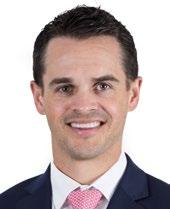
Winter said that NCAA rules prohibit most schools from providing legal services to their student-athletes, but that some organizations are working on solutions that will include free legal services for college athletes.
Palmer of Kaufman & Canoles said seeking out legal services is important because of the novelty and rapidly changing standards governing NIL in college and high school.

“Even after NCAA v. Alston and the passage of Virginia’s NIL legislation, we are witnessing all kinds of unique approaches and offerings for use of NIL,” Palmer said. “Many of these approaches and entities like NIL col-
lectives have found ways to operate in the gray area between state law and rules promulgated by enforcement bodies like the NCAA and VHSL (Virginia High School League).”
Many NIL deals are set up through collectives or third-party businesses usually formed by schools’ fans or boosters. These collectives create and support NIL opportunities for student-athletes, helping expose them to a variety of brands.
Visser said that her practice group at Varnum focuses on representing those collectives, higher education institutions and boosters.
“I would say the ‘NIL lawyer’ focuses on entity formations, forming collectives and the compliance aspect … as well as doing training for athletic department staff and coaches so when they’re presented with questions by student-athletes or boosters, they feel a little more comfortable answering those questions,” she said. “It’s also very heavy in contract law … just drafting NIL agreements between collectives, boosters, and companies and student-athletes.”
Visser, former in-house counsel with the University of Toledo’s athletic department, noted that she also spends a fair amount of time ensuring compliance with NCAA bylaws and recent guidance established by the Internal Revenue Service.

“Most collectives were formed as 501(c)(3)s in the beginning of NIL, and in some cases that might work, but in most cases, a collective isn’t going to fall into that exempt area,” she said.
Lawyers as role players
Where so many individuals and entities have an interest in NIL — from student-athletes to coaches to
institutions and conferences — and where guidance is barebones and often not uniform, Sexton believes that lawyers are necessary in the relatively new and ever-changing world of NIL.
“Because of the differing laws and regulations at play, as well as the nature of the industry, I think it’s vital that conferences, institutions and athletes consult legal counsel to ensure that all NIL activity is in compliance with applicable laws, regulations and policies,” he said. “We keep them apprised of all relevant legal and regulatory developments, discuss best practices and provide other insights into the NIL space.”
William “Corky” Klett III of Burr & Forman in Charleston and Columbia, South Carolina, said that while the NCAA’s amateurism regulation has changed, the legal concept of NIL remains the same. As such, the change in NCAA amateur rules has simply opened a new category of potential licensors of student-athletes’ NIL.
“The good news for college athletes is that the world of NIL is not new at all, and attorneys have been handling the issues that the athletes, schools, collectives and endorsers are facing for decades,” Klett said. “College athletes and the various parties to their NIL deals benefit from the fact that we have been counseling in NIL transactions for many years, and there is, by and large, nothing different about these deals in the collegiate sports context.” ◆
6 SEPTEMBER 2023 | NORTH CAROLINA LAWYERS WEEKLY NEWS
COVER STORY
Klett
Sexton
Visser
The iTracs® Advantage
TRUST ACCOUNT MANAGEMENT SERVICES

RISK MANAGEMENT = PEACE OF MIND
iTracs helps you manage trust-account-related risk through ongoing account reconciliation, account activity monitoring, and daily reporting. Gain the peace of mind that comes from knowing your trust account is secure.
EXPERT SUPPORT
The iTracs platform automates daily account reconciliation and includes transaction monitoring, activity alerts, built-in reporting, and Positive Pay options. Professional account managers provide valuable customer support and assistance, lead product implementation, and deliver training. Courteous, knowledgeable, and responsive, they serve as partners in analyzing and managing your trust account.
VALUE-ADDED SERVICES
iTracs services don’t stop with the software. Account clean-up, audit preparation, consulting, and other services are available.
CUSTOMIZED SOLUTIONS
We don’t believe in “one size fits all.” We listen first. Then we develop customized, innovative solutions that meet your ongoing business needs.
TOOLS
Several tools, including Positive Pay options, provide maximum visibility into your trust account activity and alert you to possible fraud in time for you to act.
CLIENT ONBOARDING
iTracs client onboarding and user training are second to none. Training plans, including Positive Pay automation training, are customized to meet your needs. Services are implemented quickly and efficiently.

COMPLIANCE, SIMPLIFIED
Fulfillment of compliance requirements are not easily outsourced – but we can help! iTracs reinforces best practices and has built-in protocols that assist you with meeting regulatory compliance requirements.
ELECTRONIC VERIFICATION OF RECONCILIATION
No need to wait until month end. With iTracs, your reconciliation status is confirmed daily from wherever you may be, including from your mobile device!
itracs@invtitle.com | 800.326.4842 | myitracs.com Leverage our expertise for
your firm.
Counsel’s focus firmly set on reproductive rights
Behind Susanna Birdsong’s mild voice stands a steely resolve.
The counsel for Planned Parenthood South Atlantic speaks clearly and unequivocally about her job and what she sees as its importance to herself and others.
“The issue of reproductive freedom and bodily autonomy was deeply personal to me,” she said about what drew her to the position. “It felt like the right job and the right time for me.”
But despite her title, Birdsong’s work as the affiliate’s lawyer is not what many people would expect. For one thing, she is not its courtroom presence.
“I’ve never been a litigator,” she said. Instead, she works in policy-driven areas. At one time, she served as its registered lobbyist, but her official title now is general counsel and vice president of compliance.
“My priority work over the last year has been to support our health care providers and support staff,” she said, helping them to understand changes in laws such as North Carolina’s Senate Bill 20.
Passed this spring over the veto of Gov. Roy Cooper, the bill limits abortion to not later than the 12th week of pregnancy, requires patients to make an extra visit to a clinic before undergoing an abortion, and
• Place of birth: Jackson, Miss. “I consider Wilkesboro, North Carolina, my hometown.”
• Education: Bachelor’s in English and history, 2003, and Master of Social Work, 2008, University of North Carolina at Chapel Hill; Juris Doctor, 2013, American University Washington College of Law.
• Firms affiliated with: Two-year legal
VIDEO: See Susanna Birdsong explain how her previous legal work prepared her to serve as counsel for Planned Parenthood South Atlantic in a video at nclawyersweekly.com or by scanning the QR code here.

mandates the clinic’s use of a state-approved script to convey certain information to them.
“The law prior to that had been 20 weeks,” she said, until the General Assembly “stripped eight weeks of access.”
She also has been involved in a seesaw fight over abortion in South Carolina.
After Roe v. Wade, the 1973 U.S. Supreme Court case that legalized abortion, was overturned in 2022, South Carolina legislators passed a law banning the procedure after the sixth week of pregnancy. Planned Parenthood South Atlantic sued that year in state court, and the South Carolina Supreme Court upheld an injunction that blocked the law.
“The justices said that a six-week abortion ban was a violation of South Carolinians' right to privacy,” Birdsong said.
But the fight continued when state legislators again passed a similar law. Planned Parenthood South Atlantic sued again, but there was a key difference.
“The composition of the (Supreme Court) had changed in the meantime,”
SUSANNA BIRDSONG AT A GLANCE
fellowship, National Women’s Law Center in Washington, D.C.; senior policy counsel, American Civil Liberties Union of North Carolina.

• Civic engagement: “I am a busy mom of three daughters, and I coach Girls on the Run for them. I also am an adjunct professor at the Sanford School of Public Policy at Duke.”
she said.
Oral arguments were heard in June 2023; the South Carolina Supreme Court upheld the law in a ruling issued Aug. 23.
Planned Parenthood South Atlantic has no cases in Virginia open now.
Political and policy roots
Her ties to Planned Parenthood go back to her college years at the University of North Carolina at Chapel Hill, Birdsong said, explaining, “It has been an organization I felt aligned with.”
Retail politics helped cement the tie. A first-time mother living in Washington, D.C., she volunteered to help Planned Parenthood in the 2013 state election cycle in Virginia. Birdsong even took her daughter with her while canvassing door to door on behalf of legislative candidates.
“I think becoming a parent made me more resolute in my support for reproductive freedom,” she said.
By the time she moved back to North Carolina in 2015, she was working for the American Civil Liberties Union. The position had her working alongside Planned Parenthood South Atlantic, and she moved over to the affiliate in January 2020.
Planned Parenthood’s focus was appealing.
“I really wanted to deepen my work in a single issue,” Birdsong said. “The ACLU is a multi-issue organization.”
• First job: “My first paying job, outside of babysitting, was at a little gift shop in Wilkesboro called The Cricket Box.”
• Biggest career challenge: “I have worked since moving back to North Carolina for progressive organizations, on the progressive agenda. The state political climate has made that challenging.”
8 SEPTEMBER 2023 | NORTH CAROLINA LAWYERS WEEKLY PROFILE
B y R oss c handleR • rcHandler @ lawyersweeKly com
S ee BIRDSONG Page 10
Birdsong
QUESTIONS WITH ... Jan E. Pritchett

Once an assistant district attorney in Guilford County, Jan. E. Pritchett now uses his criminal law expertise to fight for clients who are up against what he describes as “our complex, confusing and opportunistic criminal justice system.”
Among his recent notable cases is the defense of TikTok entertainer Jessica Middlebrook, known as “towtruckjess,” who earlier this year was found not guilty of involuntary manslaughter. A couple on a motorcycle hit the back of Middlebrook’s tow truck that was parked in the street in 2019, and the crash resulted in the death of the passenger. In his arguments, Pritchett compared the act of briefly parking a tow truck in the street to delivery trucks doing the
same. The state compared the tow truck that the motorcycle hit to a sword.
“It was such a bizarre case,” Pritchett told the Greensboro News & Record after the verdict. “One of the most stressful of my career.”
But Pritchett, who is managing partner at Schlosser & Pritchett, knows a bit about handling complicated criminal cases. Since 2006, he has been a North
Carolina-certified specialist in state and federal criminal law. He also chairs the North Carolina State Bar Board of Legal Specialization, which certifies lawyers in 13 areas of law, including appellate practice, bankruptcy law and trademark law. The board also seeks to serve the public by identifying those lawyers who have special knowledge, skill and proficiency in a given field.
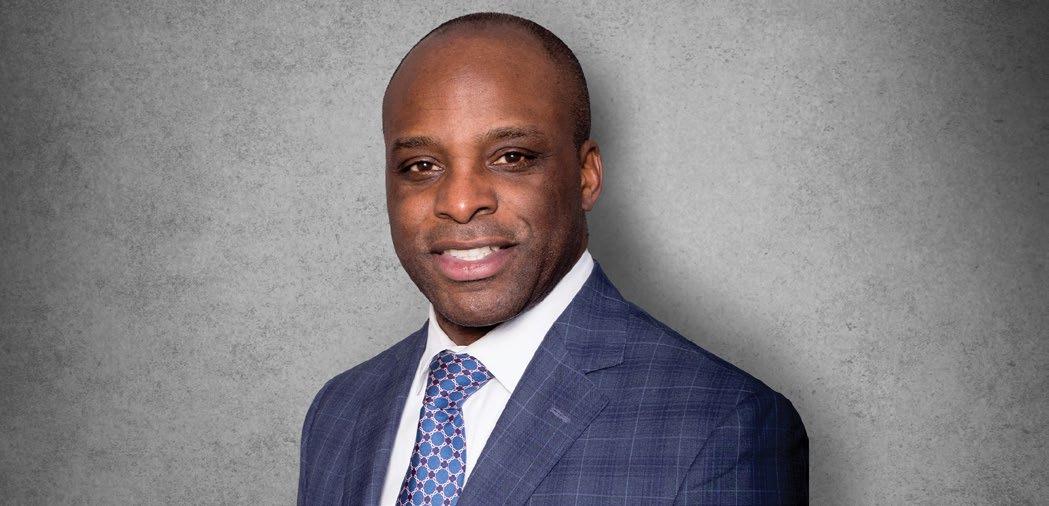
According to Pritchett, being board-certified has been helpful because it has pushed him to really focus on his specialty and because clients seek him out or are referred to him because of his certification. Lawyers Weekly wanted to know more about board certification and asked Pritchett
See Page 10
NORTH CAROLINA LAWYERS WEEKLY | SEPTEMBER 2023 9 FEATURE
VIDEO: See Jan Pritchett explain how he prepared to earn his criminal law specialization in a video at nclawyersweekly.com or by scanning the QR code here.
5
B y R asmus s. J oRgensen • rjorgensen @ molawyersmedia . com
to explain why he chose this path and what others might want to consider.
What reasons led you to seek certification in state and federal criminal law, and who urged you to pursue it?
A. I became interested in the specialization program because of a few of my local colleagues who had sought and become legal specialists. I always perceived these aforementioned attorneys to be prepared and amongst the most diligent attorneys in my field. After talking to one of them to inquire about the program, that attorney encouraged me to seek specialization in state and federal criminal law.
Continued From Page 9 1 2
What clear differences are there in the quality of representation offered by a rankand-file lawyer versus a certified lawyer?
A. There are not always clear differences between nonspecialists and specialists when it comes to an attorney's proficiency in a particular field. Quite frankly, there are many attorneys who are proficient enough to be specialists but for whatever reason have not sought certification. However, several differences that the
BIRDSONG
Continued From Page 8
Unrecognized efforts
Planned Parenthood as a whole is wellknown — possibly best-known — as an abortion provider. But it offers more services than that, including preventative care, birth control, cancer screening, sexually transmitted infections testing and treatment, primary care, and gender-affirming hormone therapy.
But many people focus just on abortion.
“There are some loud voices on the other side who have sort of permeated the narrative,” Birdsong said.
public can be assured of are that specialists have been peer-reviewed, passed an exam, are not all over the board in terms of the areas of law that they practice, and all specialists must obtain more educational hours than a rank-and-file attorney in their area of specialty.
What are the costs (time, money, etc.) of becoming a lawyer certified in a field and how can that lawyer expect to recoup them reasonably quickly?
A. Most attorneys spend a lot of hours preparing for the various specialty exams. Monetarily, there is a $250 application fee and a $200 exam fee. Because the fees are so nominal, most specialists recoup more than the fees associated with being a specialist when they receive a single case that was a product of someone hiring the specialist because of their certification.
3 5 4
Should a lawyer seek certification in a field soon after graduating from law school or is it better to gain several years’ experience before doing so and why?
A. Under our current specialization rules, it is not possible to become a specialist immediately following law
school. However, there are several things that a newly licensed attorney with the goal of seeking specialization could do. Some of the things that a newly licensed attorney with the goal of certification could do are primarily focus on one area of law, take extra educational hours in the area of interest, be well-prepared and diligent in the legal area of interest, and observe others that are proficient in that area of practice.
What areas that the N.C. Bar offers certifications in are growing the most, and what areas do you think the bar will add certifications for in the next three to five years?
A. Family law and workers’ compensation are usually two of the largest areas of specialization in North Carolina. With an aging population, the estate planning specialty will likely see a lot of growth. It is difficult to predict what new areas of specialization the State Bar may add to the specialty program. However, anytime a new area is added, there is a strict process that is followed that usually begins with an application for the proposed new area of specialization, which is followed by the initiation of a board study.◆
“We’ll never back down from being an abortion provider. … There’s some segment of people who will never be able to see us as anything other than that.”
Planned Parenthood and its South Atlantic affiliate work alongside groups such as the ACLU, Reproductive Freedom Project, Center for Reproductive Rights, Pro-Choice North Carolina, Sister Song, the North Carolina Obstetrical & Gynecological Society, the North Carolina Justice Center, and the American College of Obstetricians and Gynecologists.
And on the opposing side?
“I don’t even know that I want to give
them airtime,” Birdsong said with a laugh, then named the North Carolina Values Coalition and local pregnancy care centers.
“There are myriad anti-abortion, specifically, groups and entities whose goal is to lobby legislators to ban abortion,” Birdsong said. “They have found willing partners in many state legislatures over the years, including this session in North Carolina and South Carolina.”
She, however, is undeterred.
“I have never been more resolved than I am about reproductive freedom,” Birdsong said. ◆
10 SEPTEMBER 2023 | NORTH CAROLINA LAWYERS WEEKLY FEATURE
FEATURE
Insurance appeal dismissed after intervening settlement
Acommercial insurance carrier’s appeal of an order requiring it to defend a lawsuit was dismissed after the 4th U.S. Circuit Court of Appeals found that it lacked jurisdiction because the underlying action was resolved by an intervening settlement.
The insurer argued that the District Court’s order to defend was effectively an injunction, but Senior Circuit Judge Barbara Milano Keenan said there was no longer any duty to defend because of the settlement and damages were available for any past breach.
“[G]iven the resolution of the underlying action, the district court’s award of partial summary judgment in favor of the defendants on [plaintiff’s] duty to defend is not appealable under Section 1292(a)(1),” she explained. “We are able to consider this question along with the related issue of damages on appeal of a final judgment, furthering our goal of avoiding ‘[p]iecemeal’ appeals in the absence of any immediate or pressing consequence.”
Keenan was joined by Circuit Judges Allison Jones Rushing and DeAndrea Gist Benjamin in Selective Insurance Co. of America v. Westfield Insurance Co.
Weaver Cooke Construction contracted with New Bern Riverfront Development to serve as general contractor for a condominium complex to be built in North Carolina. Weaver Cooke contracted with various subcontractors, including DD Plumbing.
Weaver Cooke was a named insured under two commercial liability policies, one issued by Westfield Insurance and the other by Zurich American. DD Plumbing was a named insured and Weaver Cooke was an additional insured under a Selective Insurance policy.
Selective’s policy required it to defend the insured against any lawsuit seeking damages for bodily injury or property damage.
After filing for bankruptcy, New Bern initiated an adversary proceeding against Weaver Cooke and others for defective construction. Selective didn’t comply with a request by Weaver Cooke and Westfield that it defend Weaver Cooke as an additional insured.
Westfield and Zurich each sought a declaration in the Eastern District of North Carolina that Selective had a duty to defend Weaver Cooke and demanded “equitable subrogation/contribution” against Selective for reimbursement of their costs in defending Weaver Cooke.
Weaver Cooke also filed a counterclaim against Selective for unfair trade practices, as well as a right to indemnification. The District Court stayed the indemnification claim pending resolution of the underlying factual issues.
The parties sought summary judgment after completing discovery on the duty to defend and unfair trade practices claims. Finding that DD Plumbing’s work was implicated as the cause of water damage, the court concluded that was property damage under Selective’s policy.
Having found that Selective had a duty to defend Weaver Cooke as an additional insured, the court awarded partial summary judgment to Westfield, Zurich and Weaver Cooke. The court refused to grant summary judgment for unfair trade practices due to factual disputes.
The court stayed the issues of duty to defend damages and the unfair trade practices until the underlying case against DD Plumbing was resolved.
See Page 12
North Carolina Real Estate Commission ASSISTANT DIRECTOR OF REGULATORY AFFAIRS
Attorney needed to assist division director with supervisory and managerial responsibilities and to prosecute cases involving allegations of violations of Real Estate License Law and Commission rules before the Commission. License to practice law in the State of North Carolina and considerable years of progressively responsible professional experience required. $82,551 - $114,675, plus excellent benefits. Hybrid position located in Raleigh area. To apply and for more information go to ncrec.gov/Resources/ EmploymentOpportunities or call 919-608-7148.

NORTH CAROLINA LAWYERS WEEKLY | SEPTEMBER 2023 11
COURTS
B y n ick h uRsTon
NC Real Estate Commission. EOE.
Neither party moved to dissolve the court’s order to administratively close the case. Selective appealed.
Later, the Bankruptcy Court approved a settlement that resolved the parties’ defective construction claims and issued a final decree that closed the underlying action.
Selective asserted that the District Court erred in concluding that it owed a duty to defend because the allegations in the underlying action involved only “non-covered economic damages” and suggested only a need for “further investigation” regarding DD Plumbing’s liability.
Keenan agreed with Selective that the District Court hadn’t entered a final judgment that would allow review of this appeal under 28 U.S.C. § 1291, which permits appeals of interlocutory orders granting injunctions.

However, the judge disagreed that the court had jurisdiction and noted
that issues of damages, as well as the unfair trade practices claims and indemnification claim, were still pending in the district court.
Selective cited Ramara Inc. v. Westfield Inc., a 2016 opinion of the 3rd U.S. Circuit Court of Appeals, to argue that the District Court’s partial award of summary judgment against it effectively was “an injunction requiring [Selective] to provide a defense to Weaver Cooke in the underlying action.”
Keenan was unconvinced.
“Even assuming, without deciding, that at the time of its entry, the district court’s order was in the nature of an injunction in that the order required Selective to take prospective action in the underlying litigation, because the underlying action now has been resolved, there is no possible present or prospective requirement for Selective to act by providing a defense to Weaver Cooke,” she wrote.
Here, the judge said that any breach by Selective’s failure to defend Weaver
Cooke could be remedied at this juncture by an award of damages. Thus, the District Court’s holding that Selective had a duty to defend didn’t presently produce any immediate or pressing event.
Keenan wasn’t persuaded by Selective’s reliance on Ramara where the 3rd Circuit explained how the lower court’s holding that the insurer had a duty to defend a party “granted forward-looking,” “prospective” relief, which was immediately appealable.
She said this appeal didn’t present an issue requiring consideration separate from the pending issues in this case. The court could review Selective’s duty to defend after final judgment without ensuing consequence and therefore § 1292(a)(1) didn’t confer jurisdiction.
She concluded that the District Court’s order here lacked the character of an injunction and didn’t require the court to consider any question separate from issues that may be appealed after entry of a final judgment. ◆
12 SEPTEMBER 2023 | NORTH CAROLINA LAWYERS WEEKLY
Continued From Page 11 COURTS Has your client identified fraud against the government? Partner with us. ★ ★★ ★★ “Bill Nettles is extremely effective as an advocate for his clients. You will be glad you brought your qui tam case to Carolina Whistleblower Attorneys.”
U.S. Attorney who leads our formidable team. We’re led by a former U.S. attorney who helped lead the nation in whistleblower recoveries. ✓ Experience We have the resources to invest in cases and maximize value. ✓ Resources You can be as involved in the case as you want to be. ✓ Flexibility carolinawhistleblower.com • 1-866-533-6743
Bill Nettles Former
NORTH CAROLINA CHAPTER

Barwick
L. Bell Jr.
T. Boyette
R. Clare
M. Clare
James L. Conner II
Kate Deiter-Maradei
Erin D. Eveson
Paul T. Flick
Patricia L. Holland
Joseph T. Howell
J. Anderson Little
Terry M. Kilbride
Michael E. McDaniel
Robert A. Meynardie
Karen Britt Peeler
James S. Schenck IV
Reagan H. Weaver
Barbara B. Weyher
Scott M. Taylor
Marshall A. Gallop Jr.
Ralph W. Meekins
S. Kent Smith
Sherman Lee Criner
William A. Blancato
Colleen Byers
Kenneth P. Carlson Jr.
Anderson Cromer
William H. Freeman
Ellen R. Gelbin
NAME Hon. Sharon Barrett Sarah V. Corley Michael W. Drye Anne Duvoisin Jennifer S. Brearley Frank Laney LeAnn Nease Brown Melinda M. Evans Steve Dunn Wayne P. Huckel Jason B. James Raymond E. Owens Jr. Robert A. Beason Donald H. Beskind Joseph Chambliss Dailey J. Derr Rene Stemple Trehy Henry W. Gorham T. Alan Pittman Richard D. Conner Thomas C. Duncan William A. Eagles Lynn G. Gullick Jonathan R Harkavy Harper Heckman Robert A. Brinson Michael A. Swann Scott C. Hart Ken McCotter Jr. M. Ann Anderson Virginia G. Adams BASED IN Asheville Asheville Asheville Blowing Rock Cary Cary Chapel Hill Chapel Hill Charlotte Charlotte Charlotte Charlotte Durham Durham Durham Durham Durham Emerald Isle Fayetteville Greensboro Greensboro Greensboro Greensboro Greensboro GreensboroHigh Point Lexington New Bern New Bern Pilot Mtn. Raleigh PHONE (828) 768-5124 (828) 232-2800 (828) 298-1484 (828) 295-7469 (704) 533-5025 (919) 818-8029 (919) 968-1111 (919) 593-5167 (888) 305-3553 (704) 333-0073 (704) 227-0124 (704) 295-4509 (919) 419-9979 (919) 613-7085 (919) 414-1808 (919) 419-1265 (866) 517-0145 (919) 805-5003 (910) 486-0992 (336) 691-9222 (336) 274-7243 (336) 433-9980 (336) 686-4336 (336) 370-4200 (336) 387-5181 (336) 889-8733 (336) 249-7777 (252) 633-3131 (252) 635-1005 (336) 368-9621 (919) 838-8873 CALENDAR o o o NAME Collins
Asa
Richard
Jacqueline
Thomas
BASED IN Raleigh Raleigh Raleigh Raleigh Raleigh Raleigh Raleigh Raleigh Raleigh Raleigh Raleigh Raleigh Raleigh Raleigh Raleigh Raleigh Raleigh Raleigh Raleigh Res. Triangle Rocky Mount Shelby Southern Pines Wilmington Winston-Salem Winston-Salem Winston-Salem Winston-Salem Winston-Salem Winston-Salem PHONE (919) 480-8738 (919) 755-1068 (919) 863-8729 (919) 755-9979 (919) 805 5007 (919) 313-4571 (919) 400-4087 (919) 412-2741 (919) 809-7346 (984) 232-8014 (919) 365-6000 (919) 967-6611 (919) 781-4225 (919) 610-7043 (919) 747-7373 (919) 272-7413 (919) 789-9242 (919) 828-0363 (919) 835-0900 (919) 949-4227 (252) 937-2200 (704) 487-1234 (910) 693-3411 (910) 251-0004 (336) 793-4238 (336) 499-1977 (336) 721-6843 (336) 403-8911 (336) 722-8872 (336) 945-0214 CALENDAR o o o o Visit the Academy’s free roster of over 1000 of the nation’s top litigator-rated neutrals at www.NADN.org Visited by over 1200 unique legal staff monthly, NCMediators.org assisted firms in the scheduling of over 4000 mediations in 2022, for free. Available Dates Calendars Online for the State’s Most Experienced Neutrals
Divided Appeals Court affirms disqualification of Superior Court clerk
The Court of Appeals of North Carolina has affirmed the decision to permanently disqualify a former Franklin County Superior Court clerk as the case went before the Appeals Court for a second time.
Appointed in 2013, then elected in 2014 and 2018, Patricia Burnette Chastain was initially removed from office by Johnston County Superior Court Judge Thomas Lock for misconduct in 2020.
Allegations against Chastain include that she prejudiced the court by speaking with vulgarity about Franklin County Superior Court Judge John Davis in front of members of the public and by meeting with an inmate — without advisement from Davis, who had conducted the first appearance — to have the inmate complete an affidavit of indigency.
Most notably, in a property dispute in which Davis had already entered a no-contact order, Chastain went to mediate between the involved neighbors, claiming it was her legal duty. She told the party being protected by the order that “as far as I’m concerned, it's for both of you” and stated, in reference to the order, “[Davis] legally can’t say that.” Those comments were caught on a sheriff’s deputy’s body-worn camera, as Chastain had requested police presence for the interactions.
That footage became the impetus for affiant Jeffrey Thompson to seek Chastain’s removal, and it became a key piece of evidence, said Kip Nelson of Fox Rothschild, who represents Thompson.
“That, to me, was something that was in real time and really conveyed the seriousness of what was happening,” he said.
Chastain was suspended once
Thompson’s affidavit was filed. She successfully moved to have Franklin County Superior Judge John Dunlow recused from the 2020 trial, resulting in Lock presiding over the case. But due to a requirement in the North Carolina Constitution, only Dunlow, as the senior regular resident Superior Court judge in the county, has the authority to remove a Franklin County clerk for misconduct.
Because it was not clear that Lock's decision to remove Chastain involved reasons other than misconduct, the Court of Appeals unanimously vacated his order and remanded the case, instructing Lock that he could only remove Chastain if her misconduct rose to the level of malpractice or corruption, defined as misconduct that is willful and egregious at a minimum. The Appeals Court also advised that allegations not in the charging affidavit could not be used as evidence.
Considering the case again, Lock permanently disqualified Chastain from serving as the Franklin County Superior Court clerk, this time for misconduct rising to the level of malpractice or corruption.
In her second appeal, Chastain argued her conduct did not meet that standard. She claimed Lock only concluded otherwise because he considered alleged acts that were not part of the charging affidavit.
But Lock specifically stated he did not rely on the inadmissible allegations except to consider Chastain’s credibility. Therefore, Lock did not err in this regard.
Chastain also argued that Lock considered the evidence in totality rather than isolation. But that is allowed. In fact, the
Appeals Court noted in its opinion on Chastain’s first appeal that the Supreme Court of North Carolina has stated that persistent acts of misconduct might rise to the level of willful misconduct. Again, the Court of Appeals found that Lock did not err.
In order to appraise Chastain’s conduct, Judge Jefferson Griffin wrote in the majority opinion, it is only necessary to ask the same question that the Supreme Court did in In re: Peoples: What would the quality of justice and the reputation of the courts be if every clerk exercised their duties in this way?
In answering that question, the court noted that Chastain’s significant time in office meant she knew or should have known her duties and ethical responsibilities. Yet, she continually engaged in misconduct that brought the judicial system into disrepute.
Even without considering any other misconduct, Chastain’s conduct in the property dispute was sufficient to warrant her disqualification, according to Griffin’s opinion.
He noted, however, that Article VI of the North Carolina Constitution, which allows disqualification for malpractice or corruption, does not include any reference to removal from office, unlike Article IV, which specifically does.
“As such, our Court, in Chastain I, should have remanded the matter for further proceedings by Judge Dunlow under Article IV without instructing on an alternative method for removal,” Griffin wrote.
But in accordance with In re: Civil Penalty, the Court of Appeals is bound by its previous decision until a higher court rules otherwise. Chastain was on the ballot in November 2022 but lost.
In the majority opinion, Griffin affirmed the trial court’s decision. Judge Julee Flood concurred.
Judge April Wood argued in her dissent
14 SEPTEMBER 2023 | NORTH CAROLINA LAWYERS WEEKLY
OPINIONS
B y R asmus s . J o R gensen • rjorgensen @ molawyersmedia com
RELATED COMMENTARY: Two lawyers guide Monroe through removal of City Council member, Page 23
that the standard for removal had not been met.
Since Wood dissented, Chastain has the right to appeal to the Supreme Court, which she has exercised, Nelson said. He
said the question of whether Article VI can be used to remove, not just disqualify, is among the questions he expects the state Supreme Court to answer, though briefs had yet to be filed.
Chastain’s attorney, Matthew Ballew of Zaytoun Ballew & Taylor, did not respond to a request for comment.
The case is In re: Chastain, COA22-649. ◆
To view the full list of opinion digests, visit www.nclawyersweekly.com.

Civil Practice

Standing – Summary Judgment –Confederate Monument Relocation – Open Meetings Law
Plaintiffs filed this declaratory judgment action challenging the relocation of a Confederate monument, but each plaintiff either denied having an ownership interest in the monument or admitted they do not own the monument. Plaintiffs offer no alternative argument that they maintain the requisite standing to
pursue a claim for declaratory relief.
We affirm summary judgment for defendant.

Even if G.S. § 100-2.1 (Protection of Monuments, Memorials, and Works of Art) could be interpreted to implicitly authorize the assertion of a private right of action, nothing in the relevant statutory language or the allegations contained in the complaint suggests that plaintiffs would be in the class of persons on which the statute confers the right.
See Page 16
NORTH CAROLINA LAWYERS WEEKLY | SEPTEMBER 2023 15
OPINIONS
Local Solutions. Global Reach.
OPINIONS
Continued From Page 15
Matters determined by a summary judgment are res judicata in a subsequent action. Under our precedent, summary judgment is proper if the plaintiff lacks standing to bring suit.
Plaintiffs also alleged a violation of the Open Meetings Law because the defendant-town made the decision to relocate the monument at a Zoom meeting. However, at a subsequent regular meeting held on 20 July 2020, the town council voted unanimously to ratify the prior action taken regarding relocation of the monument. Plaintiffs did not challenge the town council’s actions at the 20 July 2020 meeting. Even if plaintiffs had obtained their requested relief, a declaration that the actions of the town council taken on 22 June 2020 were null and void, this ruling could not have any practical effect on the existing controversy. Thus, this issue is moot.
Affirmed.
Dissent
(Tyson, J.) While there may be purported conflicting case law from this court regarding issues of jurisdictional or subject matter standing being disposed of by summary judgment, the North Carolina Supreme Court reviews challenges to subject matter jurisdiction through a motion to dismiss under N.C. R. Civ. P. 12(b) (1), instead of under either a motion to dismiss under Rule 12(b)(6) or a motion for summary judgment under Rule 56.
Standing is a necessary prerequisite to a court’s proper exercise of subject matter jurisdiction and is not a merits adjudication. The trial court’s dismissal and entry of summary judgment for lack of subject matter jurisdiction is not a final judgment on the merits.
I would reverse and remand with instructions to enter the order without prejudice.
Edwards v. Town of Louisburg
(Lawyers Weekly No. 011-144-23, 21 pp.) (Fred Gore, J.) Appealed from Franklin County Superior Court (Michael O’Foghludha, J.) Larry Norman for plaintiffs; James Cauley and Emily Cauley-Schulken for defendant. North Carolina Court of Appeals
Criminal Practice
Due Process – First Impression –No-Arrest Agreement – Insufficient Cooperation
The government must comply, not only with plea agreements and non-prosecution agreements, but also with law enforcement officers’ agreements not to arrest. In this case, it is unclear whether the officer made a promise not to arrest if defendant gave up all the cocaine that he had in his possession, whether defendant relied on this promise when he gave the officer a bag containing 0.7 grams of cocaine base, and whether the officer breached the promise when – after deciding defendant had not provided substantial assistance to law enforcement – he obtained arrest warrants, arrested defendant in his home, and found 17.8 grams of cocaine in defendant’s home.
We vacate the district court’s denial of defendant’s motion to suppress and remand for a determination as to whether a non-arrest promise was made, relied upon and breached.
Facts
On September 24, 2019, a police officer saw Manley Johnson, whom the officer knew had a suspended license, drive away from defendant’s home. The officer stopped Johnson, a K9 officer’s sniff was positive, and a search of Johnson’s vehicle produced 0.1 grams of cocaine base.
The officer drove to defendant’s home. Defendant met the officer on the front porch and basically acknowledged selling cocaine to
Johnson. The officer told defendant that, if he gave the officer all the cocaine he had, everything would still be “squared away.” Defendant gave the officer a bag containing 0.7 grams of cocaine base.
Thereafter, defendant helped law enforcement locate and arrest a man for whom the police had an outstanding arrest warrant. On November 7, 2019, after defendant provided no more assistance to the police, the officer obtained arrest warrants based on the cocaine seized from Johnson and defendant on September 24, 2019. Defendant was arrested in his home, a search of which produced 17.8 grams of cocaine base, leading to defendant’s indictment for possession with intent to distribute cocaine base.
Due Process
United States v. Carter , 454 F.2d 426 (4th Cir. 1972), stands for the proposition that if the government utilizes its discretion to strike bargains with potential defendants, those bargains can be enforced against the government. While Carter concerned a plea agreement, we have since recognized that a non-prosecution agreement invokes the same constitutional due process concerns as a plea agreement. We have also noted that, when certain conditions are met, courts may enforce informal grants of transactional immunity.
The fact that the government may have learned of a defendant’s wrongdoing prior to making an agreement does not place the government’s promise of leniency beyond the scope of the agreement. Quite the opposite, it is the government’s knowledge of wrongdoing that so often serves as consideration for such agreements. As a result, the government’s promise not to act on that knowledge cannot be deemed categorically unenforceable.
Here, if the officer did breach a promise not to arrest defendant for
16 SEPTEMBER 2023 | NORTH CAROLINA LAWYERS WEEKLY
either quantity of drugs recovered on September 24 in exchange for his cooperation, defendant could seek to enforce that promise against the government. To be sure, Carter and its progeny do not address the precise promise defendant alleges occurred here: a promise not to arrest. Yet we see no reason to treat a non-arrest agreement any differently than the non-prosecution and plea agreements we have previously held enforceable against the government.
In non-arrest agreements, as in non-prosecution and plea agreements, the government wields its vested authority to extract cooperation from a potential defendant in exchange for a promise of leniency. A police officer is not entitled to arbitrarily breach these agreements, which have become a central feature of the many drug-related prosecutions that occupy our criminal legal system each year. In all such contexts, therefore, where an individual fulfills his obligations under the agreement, settled notions of fundamental fairness may require the government to uphold its end of the bargain, too. To hold otherwise would rubber-stamp a police practice that stands to undermine the honor of the government and public confidence in the fair administration of justice.
We therefore remand to the district court to determine in the first instance whether the non-arrest promise was made, relied upon and breached as alleged. If the district court determines the officer did breach such an agreement, it should also determine whether specific performance or other equitable relief is appropriate to remedy that breach. Vacated and remanded.
United States v. Bailey (Lawyers Weekly No. 001-084-23, 16 pp.) (Roger Gregory, J.) No. 22-4134. Appealed from USDC at Greensboro, N.C. (Carlton Tilley, S.J.) Thomas Kieran
Maher and Amos Tyndall for appellant; Craig Matthew Principe, Sandra Hairston and Terry Meinecke for appellee. United States Court of Appeals for the Fourth Circuit
Criminal Practice
MAR – Alford Plea – Recanted Statement – No Testimony
G.S. § 15A-1415(c) allows a defendant who entered an Alford plea to move for appropriate relief based on recanted testimony. However, since there was no trial, there was no testimony. The fact that a witness subsequently recanted her statement to police did not entitle defendant to relief from his plea.
We dismiss defendant’s appeal and deny his petition for writ of certiorari to review the superior court’s denial of his motion for appropriate relief.
In the face of the statements of co-defendant Demario Danzy and witness Brenda Goins that defendant had shot the victim, defendant pleaded guilty to second-degree murder pursuant to North Carolina v. Alford , 400 U.S. 25 (1970). In doing so, defendant swore to his transcript of plea that contained an understanding that his decision forfeited his right to trial in which he could “confront and cross examine witnesses against” him.
Some years later, Goins recanted and said it was Danzy who had shot the victim. Based on Goins’ new statement, defendant moved for appropriate relief. His motion was denied without an evidentiary hearing because it involved only a question of law.
Had defendant’s murder case proceeded to trial and had Goins’ statement been admitted in furtherance of a conviction, without an opportunity for defendant to confront her as a witness against him, the analysis and definitional application of Crawford v. Washington , 541 U.S. 36 (2004), cited by the dissent, would be relevant. Moreover, had defendant’s case pro-
ceeded to trial and the witnesses testified in conformity with this statement, but later recanted the testimony that led to a conviction, an evidentiary hearing would be appropriate under G.S. § 15A-1415(c).
However, neither of these scenarios occurred here, and defendant was not deprived of his constitutional or statutory rights. We decline to conflate the Supreme Court’s logic applied to Confrontation Clause jurisprudence to the concerns sought to be addressed by § 15A-1415(c) in determining the meaning of testimony.
Dismissed.
Dissent (Riggs, J.) Defendant entered an Alford plea to the murder of the victim, meaning he denied guilt but acknowledged there was sufficient evidence to convince the judge or jury of his guilt. Among the evidence undergirding defendant’s guilty plea were two statements that were the only indicia of his identity as the murderer: (1) a written statement from Danzy that defendant was the shooter and (2) a proffer from Goins corroborating Danzy’s statement and confirming, based on her eyewitness account, that defendant killed the victim.
Almost five years later, Goins – by affidavit – recanted her evidentiary statements relied upon by defendant, the state, and the trial court in the entry of his Alford plea. Goins’ affidavit calls into substantial doubt the only two pieces of evidence establishing defendant as the shooter to the exclusion of all others; it both impeaches Danzy’s testimony and serves as positive evidence that he, and not defendant, committed the murder.
G.S. § 15A-1415(c) provides, in part, that “a defendant at any time after verdict may by a motion for appropriate relief, raise the ground that evidence is available which was unknown or unavailable to the defendant at the
See Page 18
NORTH CAROLINA LAWYERS WEEKLY | SEPTEMBER 2023 17
OPINIONS
Continued From Page 17
time of trial, which could not with due diligence have been discovered or made available at that time, including recanted testimony, and which has a direct and material bearing upon ... the defendant’s guilt or innocence.”
The majority’s narrow reading of “testimony” is not in keeping with the term’s use in the law, nor is it consistent with the remedial nature of the statute. Besides Crawford’s expansive understanding of “testimony,” the criminal law of this state makes numerous references to the clear concept of “unsworn testimony.”
The independent factual basis required by G.S. § 15A-1022(c) serves to satisfy the trial court’s, the state’s, and the wider public’s interest in convicting the person that actually committed the crime as disclosed by some evidentiary information indicating the defendant’s guilt. The MAR statute likewise seeks to ensure that only guilty parties are punished by allowing defendants to challenge their convictions based on newly discovered evidence. These aligned purposes, considered in pari materia, lead me to disagree with the majority that defendant is not entitled to an evidentiary hearing based upon a sworn affidavit from an eyewitness recanting a testimonial statement that established the independent factual basis for the plea.
State v. Brown (Lawyers Weekly No. 011-149-23, 17 pp.) (Michael Stading, J.) (Allison Riggs, J., dissenting) Appealed from Guilford County Superior Court (Susan Bray, J.) Kayla Britt for the state; Miranda Dues for defendant. North Carolina Court of Appeals
Domestic Relations
Parent & Child – Guardianship – Interstate Compact on the Placement of Children – Study Unnecessary
In determining guardianship for the respondent-Mother’s three young
children, the trial court was deciding whether to eliminate the children’s maternal Grandmother, who lives in Georgia, from consideration. As such, the Interstate Compact on the Placement of Children did not require the trial court to wait for the results of Grandmother’s home study before awarding guardianship to the children’s Great-Aunt, a North Carolina resident with whom the children had been living for three years.
We affirm the award of guardianship to Great-Aunt. However, we vacate and remand the visitation portion of the order.
Assuming the ICPC applies in this case, there is no obligation under the ICPC that a home study be completed to rule out an out-of-state relative as a placement option. The plain language of G.S. § 7B-903(a1) states that the ICPC only applies where a child is actually placed with someone out-ofstate, and only must be complied with respect to the out-of-state person with whom the child is being placed.
The trial court’s order supports its discretionary decision to place the children with Great-Aunt. For instance, the trial court found GreatAunt’s home was the only home the children had ever known, her home is near other relatives, the children were generally doing well living with Great-Aunt, and Grandmother already had three minor children in her home she was taking care of. Further, we note the trial court’s findings that over many years, the children bonded with Great-Aunt but not with Grandmother and that it would be in the children’s best interest to remain in the only home they have ever known.
It may be that Vance County DSS inappropriately delayed in following through on its obligation to request a home study of Grandmother as was previously ordered. Notwithstanding, the matter was properly before the trial court in the latest round of hearings, and the court had the discretion
both to enter its guardianship order without the benefit of the home study and to deal with VCDSS’s behavior separately, as may be warranted.
However, the visitation provision of the order does not support the grant of twice weekly electronic-only visitation. First, to grant electronic-only visitation, the trial court must, but did not, find that a parent has forfeited her right to visitation or that visitation would be inappropriate under the circumstances. Second, the order must, but does not, address the length of the visits and whether they need to be supervised.
Affirmed in part; vacated in part and remanded.
Dissent (Stroud, C.J.) The trial court erred by making a guardianship determination without waiting for the ICPC home study of Grandmother.
The majority opinion reduces a statutory mandate established to protect the best interests of abused, neglected or dependent children to a mere discretionary question. The majority also overlooks VCDSS’s egregious and unexplained delays and multiple violations of court orders to initiate the home study of Grandmother. Furthermore, the majority gives credence to VCDSS’s argument that the ultimate placement of a child is up to the DSS and that the trial court just serves as a rubber stamp for the DSS’s decision.
I disagree with the majority opinion’s determination that the ICPC only applies when a child is actually placed with an out-of-state relative. This interpretation is exactly the opposite of the actual purpose of the ICPC.
In re K.B. (Lawyers Weekly No. 011139-23, 31 pp.) (Chris Dillon, J.) (Donna Stroud, C.J., concurring in part & dissenting in part) Appealed from Vance County District Court (Katherine Burnette, J.) Sheneshia for petitioner; Christopher Watford for respondent; Erica Hicks for guardian ad litem. North Carolina Court of Appeals ◆
18 SEPTEMBER 2023 | NORTH CAROLINA LAWYERS WEEKLY
OPINIONS
$250,000 SETTLEMENT
Family, day care settle after bleach is sprayed on 4-year-old
Action: Child abuse
Injuries alleged: Pediatric post-traumatic stress disorder, adverse childhood experience, minor skin irritation
Case name: Withheld Court/case no.: Withheld
Mediator: Asa Bell
Amount: $250,000 settlement
Special damages: $579.63 for recoverable medical expenses
Date: July 25, 2023
Most helpful expert: Katrina KuzyszynJones of Durham, forensic psychologist
Attorneys: Justin Osborn and Matthew Gambale of Osborn, Gamble, Beckley & Budd, Raleigh (for the plaintiff)
By Rasmus S. Jorgensen rjorgensen @ molawyersmedia . comw
A girl who was sprayed with bleach by a day care teacher in a caught-on-camera incident will receive $250,000 following a settlement, the child’s attorney said.
When being picked up one day, the then-4year-old girl had what appeared to be bleach stains on her clothes. An employee suggested cleaning product residue in a bathroom might have caused the stains, but video obtained
$2.63 MILLION SETTLEMENT
from the day care showed a teacher picking up the spray bottle of bleach from her desk, walking to the child and spraying toward her for several seconds, said Justin Osborn of Osborn Gambale Beckley & Budd of Raleigh, who represents the girl and her mother.
The teacher initially denied that the spraying occurred, but after being confronted with the video evidence, the teacher involved claimed the incident was accidental, Osborn said.
Footage showed the teacher had used the bleach to clean a few minutes earlier and then placed the bottle on her desk, which also had a water spray bottle in a different color, according to the attorney.
“And we argued, there is a moment after she sprayed the kids where she appears to look at the bottle on her desk, kind of get confused and then pick up the right bottle to spray another kid with water later on,” Osborn said. “And we think that was evidence of her realizing her mistake but not owning up to it.”
Osborn also argued that the day care failed to keep the children safe, in part because the teacher had not received mandatory training and in part because a N.C. Department of Health and Human Services investigation
found that at least six teachers at the day care had regularly been spraying children with water, against state child care laws. According to Osborn, the day care had previously been warned and received citations for failing to train its staff.
“This type of behavior, I don't think, can go on for years without either an administration turning a blind eye to it or an administration tolerating it,” Osborn said. “That was the way we positioned the case: Either you put your head in the sand, or you knew it was happening and you didn't intervene.”
After the incident, the girl was diagnosed with pediatric post-traumatic stress disorder. A pediatric forensic psychologist confirmed the diagnosis and opined that the incident amounted to an adverse childhood experience, known as ACE, which plays an important role in childhood development.
The child’s mother claimed negligent infliction of emotional distress and intentional infliction of emotional distress. This was the second time one of her children was injured at a child care facility, and she had reservations about enrolling her child but received reassurances from the day care director, including how the teachers are regularly monitored through surveillance cameras. ◆
Union County wreck involving work van leaves four injured
Action: Personal injury.
Injuries alleged: Dislocation and fracture of the left hip; right tibia and right Lisfranc fractures; left knee injury; multiple right multiplanar dislocations; multiple surgeries requiring one month of hospitalization and one month in a rehabilitation hospital.
Case name: Withheld.
Amount: $2.5 million and $132,000 in Rule 414 medical bills.
Date: July 27, 2023.
Most helpful expert: Sean Dennis, PE, accident reconstruction, of Cary
Attorneys: Paul Dickinson and Bradley Anderton of Law Offices of James Scott Farrin, Charlotte (for the plaintiff).
The plaintiff was driving home from work on Nov. 2, 2022, in Union County
when a work van crested a hill going the wrong way, careened off one vehicle and then stuck the plaintiff’s vehicle head-on. The plaintiff had to be extricated from his vehicle with mechanical jaws.
The driver of the work van was cited for felony possession of heroin and DWI.
The plaintiff suffered dislocation and fracture of the left hip; right tibia and right Lisfranc fractures; left knee injury; multiple right multiplanar dislocations and underwent multiple surgeries requiring one month of hospitalization and one month in a rehabilitation hospital.
A passenger in the plaintiff's vehicle also was severely injured, requiring a weeklong hospital stay. Two occupants of the first vehicle struck by the van also
were injured.
There was $3 million in single limits coverage for all personal injuries and property damage.
Sean Dennis, a civil engineer, was retained to conduct vehicle and site inspections.
After the plaintiff was stable and recovering, negotiations were started with Federated Mutual, including a draft complaint alleging punitive damages, site and vehicle photographs, and demonstrative images of the plaintiff's injuries and surgical results. Negotiations also included counsel for the other injured parties. A one-time deadline demand was made to resolve the plaintiff's claim for $2.5 million. ◆
NORTH CAROLINA LAWYERS WEEKLY | SEPTEMBER 2023 19 VERDICTS & SETTLEMENTS
VERDICTS & SETTLEMENTS
$3.99 MILLION SETTLEMENT
Commercial vehicle collision claims life of wife, mother
Action: Wrongful death
Case name: Withheld
Court/case no.: Withheld
Mediator: Rene Trehy
Amount: $3.99 million
Date: Withheld
Most helpful experts: Sean Dennis, accident research specialist, and J.C. Poindexter, economist.
Attorneys: Kevin J. Williams of Law Office of Kevin J. Williams, Winston-Salem, and Douglas B. Abrams and Margaret S. Abrams of Abrams & Abrams, Raleigh (for
$1.25 MILLION SETTLEMENT
the plaintiff ).
A young woman was driving to work when a commercial motor vehicle suddenly pulled out in front of her. She had no time to avoid collision and was killed in the crash. She was survived by her husband and a child.
The commercial vehicle’s driver was charged with misdemeanor death by motor vehicle.
The parties engaged in substantial presuit discovery, including the retention of accident reconstruction experts. The
estate also retained an economist and a production company to interview family members to show the impact of the loss of the wife and mother.
There were $1 million general commercial liability and $3 million excess policies available. The parties participated in a pre-suit mediation in 2023. As a condition precedent, the insurance company offered its $1 million general commercial liability policy before the mediation. The parties settled about 1½ weeks after mediation for $3,999,999. ◆
Settlement reached after woman fatally struck by truck
Action: Wrongful death
Case name: Withheld
Court/case no.: Withheld
Arbitrator/mediator: Wayne Huckel
Amount: $1.25 million
Date: Nov. 7, 2022
Most helpful expert: Ryan McMahan, accident reconstruction expert
$1.17 MILLION SETTLEMENT
Attorneys: Hunter Gillespie and Herbert Auger of Auger and Auger Law Firm, Charlotte.
The woman was walking home from work when she was struck by a tractor-trailer, causing severe injuries that led to her death. While liability was not in question, damages were contested due to questions regarding whether she
died on impact, her pain and suffering, and the amount of damages for loss of society, companionship and comfort for the family. The decedent did not have a spouse or dependents, and her mother and father live outside of the United States. The case was not settled at mediation, but a resolution was reached before trial.◆
Transportation Department crash leads to seven-figure payout
Action: Motor vehicle accident
Injuries alleged: Fractured femur, jaw and hand, collapsed lung, brain hemorrhage.
Case name: Withheld
Court/case no.: Withheld
Court: Withheld
Amount: $1 million and $178,000 for
medical bills
Date: May 12, 2023
Attorneys: Bob Whitley of Whitley Law Firm, Raleigh (for the plaintiff )
The victim was riding a moped in Johnston County when he was struck Sept. 21, 2022, by an N.C. Department of Transpor-
tation vehicle. The client suffered a fractured jaw, femur and hand, all of which required surgery. He also suffered a collapsed lung and a brain hemorrhage and was hospitalized for a month for treatment and recovery from all of the injuries.
The NC DOT vehicle’s driver was issued a failure-to-yield citation. ◆
20 SEPTEMBER 2023 | NORTH CAROLINA LAWYERS WEEKLY
DON’T MISS AN ISSUE! visit https://nclawyersweekly.com/subscribe/
New associations
Michael Frantz has joined Parker Poe Adams & Bernstein as a partner in its Charlotte office. His practice focuses on financing commercial real estate projects. He joined the firm from Katten, where he also was a partner.
Gursharon K. Shergill has joined Wagner Hicks as counsel. She will practice on the banking and financial services and the complex commercial litigation teams and maintain a pro bono practice. She previously practiced at Winston & Strawn’s Charlotte office and clerked for Judge Ann Claire Williams of the 7th U.S. Circuit Court of Appeals.
Professional groups
Andy Banzhoff, a partner at Devereux & Banzhoff in Asheville, began his one-year term as the 49th president of North Carolina Advocates for Justice on July 1. A board-certified specialist in state and federal criminal law by the North Carolina State Bar, he concentrates his practice on criminal trial and appellate litigation and has served as president of the
Buncombe County Criminal Defense Attorney’s Association.
Alex J. Hagan of Ellis & Winters’ office in Raleigh has been elected secretary-treasurer of the board of the International Association of Defense Counsel. The association is an invitation-only global legal organization for lawyers who represent corporate and insurance interests. At Ellis & Winters, he leads the litigation group and is a member of the firm’s management committee.
Patricia A. Markus, a partner at Nelson Mullins office in Raleigh, began her one-year term as the president of the American Health Law Association on July 1. Markus represents health care providers and health technology companies nationwide on regulatory compliance, reimbursement, licensure, operational matters, health information privacy, security, and technology.
Honors
Melissa Donovan and Jason Stiles have been presented the
Core Value Awards by Cranfill Sumner. Donovan is a senior state-certified paralegal in the firm’s Raleigh office who supports attorneys in the civil litigation and appellate law practice groups and is the case manager for all state and federal appeals in the firm. Stiles is the office services director, where he oversees the service teams across the firm by implementing procedures and training.
Moses Luski , a partner at Shumaker, has been selected for induction into the North Carolina Attorney Pro Bono Honor Society. His pro bono work includes closing the headquarters of Opera Carolina and the local Make-A-Wish chapter, donating significant legal services to both projects, and assisting the Hebrew Cemetery Association, Habitat for Humanity’s Charlotte region, and Charlotte Ballet with their real estate needs.
Submit notices for Lawyers in the News to Ross Chandler at rchandler@nclawyersweekly. com. ◆
Town agrees to settlement after pepper-spray incident
law by depriving Caron Nazario of his rights.
RICHMOND, Va. — A town government has agreed to independent reviews of misconduct allegations against its police force to settle a lawsuit filed after a Black and Latino Army lieutenant was pepper-sprayed during a traffic stop.
The town of Windsor, Virginia, also agreed to more officer training as part of a settlement agreement signed Thursday. In exchange, the state attorney general's office will drop its argument that Windsor police broke a new
Windsor agreed to keep working toward accreditation by the Virginia Law Enforcement Professional Standards Commission. Police also will hold officer training exercises twice a year and submit to the Isle of Wight Commonwealth's Attorney reviewing any allegations of excessive force or misconduct against its officers.
The attorney general began investigating the town after a December 2020 traffic stop involving two Windsor Police Department officers and Nazario.
The traffic stop, captured on video, showed officers drawing their guns, pointing them at Nazario, who was in uniform, and using a slang term to suggest he was facing execution before pepper-spraying him and knocking him to the ground. He was not arrested.
The attorney general's office said its investigation found that while about 22% of Windsor's population is Black, they accounted for about 42% of the department's traffic stops between July 1, 2020, and Sept. 30, 2021. The depart-
NORTH CAROLINA LAWYERS WEEKLY | SEPTEMBER 2023 21 LAWYERS IN THE NEWS NEWS
T he a ssocia T ed P R ess
S ee SETTLEMENT Page 22
Continued From Page
ment also searched more vehicles driven by Black motorists than by whites.
Nazario sued the two officers involved in his encounter for $1 million in damages. But in January, a jury in Richmond mostly sided with the officers and
awarded the Nazario a total of $3,685.

After investigating the traffic stop, then-Attorney General Mark Herring, a Democrat, said his agency found it was part of larger problem with the department.
Attorney General Jason Miyares, the Republican who defeated Herring in a




subsequent election, signed the settlement agreement with the town of about 3,000. Windsor lies about 70 miles southeast of Richmond.

"What we all saw in the shocking traffic stop video involving Army Lt. Caron Nazario was an egregious and unjust use of power," he said in a statement.

Helping People Is What We Do.
We are always grateful for referrals and value our co-counsel relationships. Call John Alan Jones or Forest Horne to discuss a possible relationship at (800) 662-1234. All inquiries held in the strictest confidence.
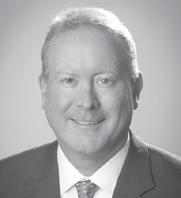



MartinandJones.com



































22 SEPTEMBER 2023 | NORTH CAROLINA LAWYERS WEEKLY SETTLEMENT
◆
Serious Personal Injury Workers’ Compensation Car Accident Injuries Mesothelioma, Lung Cancer & Asbestosis Camp Lejeune Water Contamination Dangerous & Defective Products Serving all of North Carolina with offices in Raleigh, Durham and Wilmington. Serving Eastern NC 252.633.1930 • www.olivercheek.com Tough Times Require Trusted Lawyers • All Chapters of Bankruptcy
Alternatives to Bankruptcies • Receiverships John P. Marshall COMMERCIAL & CONSTRUCTION LITIGATION 106 S. McLewean Street P.O. Box 3169 Kinston, NC 28502-3169 252.527.8000 x245 Fax: 252.527.8128
Serving Eastern NC 252.633.1930 • www.olivercheek.com Tough Times Require Trusted Lawyers • All Chapters of Bankruptcy • Alternatives to Bankruptcies
Receiverships LAWYER TO LAWYER / Directory John P. Marshall COMMERCIAL & CONSTRUCTION LITIGATION 106 S. McLewean Street P.O. Box 3169 Kinston, NC 28502-3169
x245 Fax: 252.527.8128
Start your research with North Carolina Lawyers Weekly.
our archives of stories and case digests to find that decision you remember. Get copies of the full-text opinions you need. Research verdicts and settlements to compare what your case is worth or to see what experts have been used. It’s
part of your subscription.
our online
today!
•
jmarshall@whiteandallen.com
•
252.527.8000
jmarshall@whiteandallen.com
Explore
all
Explore
resources
nclawyersweekly.com/subscribe
21
Law firm breaks new ground in rarely used amotion process
 B y V alecia m c d owell and R aquel m acg R ego R P ea R kes
B y V alecia m c d owell and R aquel m acg R ego R P ea R kes
Amotion — the process where elected officials can be removed from office before voters get a say — is exceedingly rare, and rightly so. While amotion has been recognized as a valid part of the democratic process in North Carolina since at least the 1800s, it “should be limited to extraordinary circumstances, for setting aside a decision of the electorate is not a light manner” (Berger v. New Hanover County Board of Commissioners, No. 13 CVS 1942, 2013 NCBC LEXIS 42, *29 (N.C. Supreme Court, Sept. 5, 2013)).
The limited North Carolina law on amotion explains the procedural and due process requirements for an amotion proceeding. Broadly, the case law requires notice to the elected official in question, the opportunity to be heard, and “sufficient cause shown” for removal from office ( Burke v. Jenkins, 61 S.E. 608, 609 (N.C. 1908)). A fair hearing regarding the misconduct alleged, with the removal decision based on facts in the record — not personal bias or political affiliation — also are critical (see Berger , 2013 NCBC LEXIS 42, at *36). Berger also made clear that the misconduct warranting removal must be tied to the duties of elected office.
After the amotion hearing, fellow elected officials within the same office (i.e. fellow commissioners) then vote on whether to remove the official. A removed official can appeal the decision to a North Carolina trial court, which acts as an appellate court in conducting its review. In only limited circumstances is an individual “disqualified” from holding office in the future, and removal from office
through amotion is not one of them (see N.C. Constitution art. VI, §§ 6, 8). Consequently, an official removed by amotion can run for reelection.
Monroe City Council case
James v. City of Monroe marks the first decision on amotion law in nearly a decade (No. 3:22-cv-00178-RJC-DSC, 2022 U.S. Dist. LEXIS 142176 (W.D.N.C. Aug. 10, 2022)). The prior (and most instructive) North Carolina decision on amotion was decided in 2013, and only a handful of North Carolina cases exist on the subject (see Berger, 2013 NCBC LEXIS 42, *24-29).
In James , the city of Monroe brought an action against Councilwoman Angelia James after events that occurred on Sept. 9 and 10, 2021, involving James. Her actions, involving erratic behavior at a hotel, her house and a hospital, had become a matter of significant public discourse and garnered local media attention.
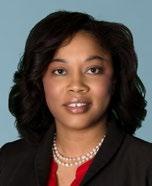
Counsel for the city presented evidence at the amotion hearing to an appointed hearing officer overseeing the proceeding. The city argued that James engaged in misconduct in office, and that just cause existed for her removal. James, represented by counsel, presented a defense.
The city engaged the co-authors of
this commentary as part of the amotion proceeding; Valecia McDowell of Moore & Van Allen served as the hearing officer, and Raquel Macgregor Pearkes was an associate who supported that effort. As hearing officer, McDowell did not recommend that the City Council remove or not remove James from office. Rather, McDowell found that the council was within its rights under North Carolina law to remove James should it choose to do so. With support from her team, the hearing officer issued proposed findings of fact and conclusions of law for the council’s consideration in a 46-page report, which were fully adopted by council. The council members then voted to remove James from office.
James appealed the decision to federal court and moved for an injunction enjoining the city from removing her from office. She also brought multiple claims based on protected speech under the First Amendment and alleged due process and equal protection violations. The court denied her injunctive motion, finding she had not demonstrated a likelihood of success on the merits for her various claims.
James appealed the decision to the 4th U.S. Circuit Court of Appeals; argument there is scheduled for Sept. 19, 2023. The decision will be significant, as it will be the first 4th Circuit panel addressing North Carolina amo-
NORTH CAROLINA LAWYERS WEEKLY | SEPTEMBER 2023 23 COMMENTARY
McDowell
Pearkes
S ee AMOTION Page 25
RELATED STORY: North Carolina Court of Appeals upholds disqualification of Superior Court clerk, Page 14.
A conversation with Justice Trey Allen

The career of the North Carolina Supreme Court’s junior associate justice has been one of constant learning — and he’s had lots of opportunities for that.
“I’ve had to start over at each job I’ve had and learn a lot,” said Justice Trey Allen. “I like to learn. I can’t get enough of it, apparently.”
Allen’s legal career started as a judge advocate general officer in the Marine Corps. He didn’t intend that destination when he started at the University of North Carolina School of Law, but he found himself suddenly called to serve. He went on active duty in 2000, and deployed to Iraq in 2004 after the U.S.-led invasion.
His career took many twists and turns from there. In 2005, he clerked for the then-junior associate justice at the state Supreme Court, Paul Newby. “As far as we know, this is the first time a sitting justice has had a former law clerk join the court as a colleague,” Allen said.
After clerking, Allen joined the education law practice of Tharrington Smith in Raleigh. The practice is particularly broad, Allen explained. “You’re dual-hatted. You’re partly a general counsel, so you give advice to board members and administrators about issues that have not yet entered litigation. The other half of the job is as defense counsel because school systems are sued quite a bit.”
Career shift
In 2013, shortly after becoming a partner, Allen gave up the perks and pay of private practice to scratch a
longtime itch to teach. When a position opened at the University of North Carolina School of Government, he “couldn’t resist” applying. “I’ve never made a smart financial decision, and it appears that I never will,” Allen said with a laugh.
From there, he focused his scholarship and teaching on local government law while redoubling his commitment to his wife and children. A father of five, he traded his latenight phone calls and busy travel schedule for some uninterrupted family time.
The next job change found him. After his election as chief justice, Newby invited Allen to be the general counsel to the Administrative Office of the Courts. A few months into the job, Allen decided to run for the Supreme Court.
Allen recalled that decision as a “huge lift.” He had no political background, so he had to learn how the political parties work, how to campaign and how to fundraise, all the while doing his day job as general counsel. Allen went on to unseat incumbent Justice Sam J. Ervin IV.

Since returning to the court about 20 years after his clerkship, he’s found that many things remain the same. Although he’s found that the technology has markedly improved — gone are the days of opinion drafts being physically circulated — he feels that there’s still room for improvement on
that front.
Philosophical stand
Allen brings to the court his judicial philosophy. For constitutional disputes, he considers himself an originalist. “For me, the art of judging, on constitutional questions, is applying the original understanding to new circumstances in a way that is faithful to that original understanding,” he said.
As for statutes: “It’s the text that governs. It’s not my role or the role of the court to rewrite it and turn it into something that the legislature didn’t intend,” he said. “I’ve only been on the court for eight months, but there have already been cases in which I felt like I had to vote a certain way because of the law, even though I didn’t necessarily like the result. And I don’t think you’re a very good judge if you like every decision you make.”
A central principle for Allen is the sovereignty of the people, whether that is exercised through our state and federal constitutions or legislative enactments. “The authority we exercise as judges is borrowed authority. We have to remember that,” he said. When judges step beyond their “neutral role of applying the law in a dispassionate way,” they infringe on the authority of other branches and ultimately “the sovereignty of the people,” Allen explained.
Court and politics
Allen knows there have been complaints about the court becoming too political. In March, the Supreme Court overruled two precedents from late 2022, after the general election flipped the partisan makeup of the court. But for people who criticize either the 2022 or 2023 decisions, he encourages them to read both sets of opinions and decide whether the principles at stake were being cor-
24 SEPTEMBER 2023 | NORTH CAROLINA LAWYERS WEEKLY COMMENTARY
Shelton
Allen
B y T R oy s hel T on
VIDEO: See Justice Trey Allen explain how his early legal career prepared him to serve on the N.C. Supreme Court in a video at nclawyersweekly.com
rectly applied.
Even though Allen was in the majority in the 2023 opinions, he doesn’t consider the overruled opinions from 2022 as “political or politically motivated.” He doesn’t ascribe bad faith to the justices with whom he had disagreed. Instead, he believes those justices simply have “different judicial philosophies. I think that’s the right way to look at the cases. I think they’re just a product of genuine differences of opinion about the role of the Court.”
When he’s not on the bench or reading a brief, you’re likely to find
this lifelong learner with a book in his hand. As an adult, he taught himself Latin. During our interview in his chambers, Allen pulled from his bookshelf a 19th-century edition of the Vulgate — an early Latin translation of the Bible.
“I had always been interested in Latin, but it was never taught anywhere,” he said.
Allen explained his decision to learn Latin was spurred by his conversion to Catholicism in 2006. He is the only Catholic member of the court, and as far he knows, he’s “the only
statewide Catholic elected official” in North Carolina.
Besides reading, Allen said his children’s hobbies occupy most of his free time. Four of his children practice Brazilian jujitsu. He’s had two jujitsu lessons himself, but the jury’s still out on whether he’ll stick with it. “We’ll see how it goes,” Allen said.
If the past is a predictor, I suspect it will go well.
Troy Shelton is an appellate partner in Raleigh at Fox Rothschild. He works with trial attorneys to win on appeal in state and federal courts. ◆
n Continued from Page 23
tion law in its 140-year history.
Federal court’s guidance
James is notable because, for the first time, an independent hearing officer and her team — not the government body itself — oversaw a removal hearing. As mentioned, the Monroe City Council also tasked the hearing officer with issuing proposed findings of fact, conclusions of law and a recommendation as to whether the council member should be removed. Notably, the council retained the sole power to render a decision on removal.
In our view, oversight by a hearing officer offers potential advantages, including independence and subject matter expertise. We worked diligently to provide a fair hearing, carefully applying the legal requirements and documenting our recommendations in the hearing officer’s report that was presented to the City Council before its members voted on removal. This diligence was recognized when the court denied James’ challenge on appeal, finding that sufficient evidence from the hearing officer’s report supported the removal.
James also is instructive because
of the court’s analysis on the limits of free speech for an elected official. As examined by the court, the hearing officer provided, and the City Council adopted, three instances of misconduct in office providing just cause for James’ removal. First, she engaged in a physical encounter with a police officer that constituted assault and battery. Second, she violated the city charter and the City Council’s code of ethics when she purportedly fired and promoted police officers and tried to physically remove a police officer’s badge. Third, she made false reports to the police that put individuals’ safety at risk.
Although James argued that her statements purportedly firing, demoting or promoting police officers were matters of public concern warranting First Amendment protection, the court disagreed. The court explained that knowingly or recklessly false statements, even on matters of public concern, are not protected speech. The court found that the council member also engaged in misconduct that is clearly not protected speech, including her physical encounter with a police officer.
The court also suggested that certain code of ethics violations, which can be vague or ambiguous, might be
insufficient to support removal. Rather than addressing whether the code of ethics provisions at issue were constitutionally vague, the court relied on the hearing officer’s report that provided other grounds for removal. This guidance reinforces the principle that removal should remain a rare event in North Carolina — reserved only for unambiguous instances of misconduct relating to the duties of office.
It is uncertain whether amotion is becoming more common, but a few things are abundantly clear. Amotion should not be used to advance personal or political agendas. Elected officials should be given notice and an opportunity to be heard. And while amotion can be exercised as a valid part of the democratic process, any action that overrules voters should never be undertaken lightly.
Valecia McDowell is a national thought leader in governmental and internal investigations, conduct risk management, and civil rights and racial equity assessments at Moore & Van Allen.
Raquel Macgregor Pearkes is a litigation associate at Moore & Van Allen. Her practice focuses on complex business and government litigation. ◆
NORTH CAROLINA LAWYERS WEEKLY | SEPTEMBER 2023 25 COMMENTARY AMOTION
TECHNOLOGY AND L EGAL E DUCATION
Using AI enhances students' learning experience, future legal work
n BY TERI SAYLOR
When students register for the paralegal studies program at Reynolds Community College in Richmond, Virginia, they will meet a multicultural cast of characters for a four-minute online orientation.
In the real world, an orientation video like this would have taken weeks to create. But Melissa Brooks, an associate professor and the paralegal program director, has used artificial intelligence to create a dream team of robots that are as lifelike as humans.

AI is on the rise in many aspects of the way we live, work and play. Brooks is using the
platform to enhance the way her students learn.
“AI in its best form can help humans do their jobs better and serve as a tool to advance the idea of working smarter, not harder,” she said. “It’s no secret that higher education is under-resourced and faced with challenges, and I thought artificial intelligence could help me in the classroom.”
At the college, Brooks is a one-woman band. As an instructor and head of the paralegal program, she is the only full-time faculty member and wears many hats. She counts on using AI as a teaching assistant.
She also views AI as a way to advance diversity, equity and inclusion in her classes
and help students relate to their studies in a way she cannot master alone.
“I identify as a white middle-class woman, and because I play so many roles in the program, I didn’t want students to hear only my voice and view only my persona all the time,” she said. “The idea that I could use artificial intelligence to help me diversify instruction was important to me as a teacher who is committed to diversity and inclusion in my personal pedagogy.”
Last summer, Brooks received a $1,500 innovation grant from the Reynolds Educational Foundation to enhance online learning in the college’s two-year paralegal degree program.


26 SEPTEMBER 2023 | NORTH CAROLINA LAWYERS WEEKLY
A Publication of
Weekly
SEPTEMBER 2023
North Carolina Lawyers Weekly and South Carolina Lawyers
A screen capture shows one of the avatars associate professor Melissa Brooks created through artificial intelligence to use in teaching a paralegal program course at Reynolds Community College in Richmond, Va.
26
Melissa Brooks photo
The program’s introductory video features a variety of avatars who take turns delivering friendly greetings to Brooks’ students. They are young, old, male, female, white, brown, and black. But Brooks says she’s not limiting her quest for diversity to race and ethnicity. Her goal is to create characters her students can identify with.
“I’m talking about diversity of age, experiences and upbringing, and that takes a lot of different shapes at a community college,” she said. “I have students who are 18 and right out of high school, and I have 67-year-old men and women who want to have a second act before they’re done.”
Law school and technology
At the North Carolina Central University School of Law in Durham, Diane Littlejohn also is exploring the bridge between technology and the law.
Littlejohn, a professor at the law school, also is the executive director of the NCCU Technology Law and Policy Center and the managing owner and principal at Littlejohn Law Offices in Raleigh and Durham, where she practices intellectual property law.

In her law practice technology course, Littlejohn focuses on teaching students how to use technology for online research and e-discovery to enhance their careers, no matter where they choose to practice.

ChatGPT, a popular language model-based chatbot and Microsoft product, is part of her teaching arsenal. The coursework is geared toward creating effective prompts for legal research and letter writing that yield the best results.
“My students are learning the language they use when crafting prompts yields different answers,” Littlejohn said. “So, I want them to see that while AI is a good tool, they must remember it may not generate their desired results.”
She also encourages students to be mind-
ful of an attorney’s ethical obligations to their clients when considering how to use AI.



“You don’t want to put your client’s private information out there,” she said. “And while my students are impressed by AI, they are cautious about it, too,” she said.
To date, the state and national bar organizations are examining how this technology is used and its implications. At law schools, administration and faculty also are questioning how AI can be used without compromising academic integrity.

In an interview for an N.C. Bar Association article, Littlejohn explained how AI and truthfulness can co-exist.
“Some professors were concerned about cheating and plagiarism and about how it may influence the critical thinking of students,” she said. “Legal professionals and legal educators need to embrace it and work with it instead of working against it and put safeguards in place to protect academic integrity.”
Discussion aid
In Brooks’ paralegal classes, she uses her AI tools to spark discussion and add liveliness to the dryer course topics.
She recalled a recent course on the topic of agency principal law, which addresses fiduciary relationships. She allowed that while it’s not one of the more exciting areas of law, it’s an important foundation for understanding business law, transactions and fiduciary responsibility.
“I fired up ChatGTP and prompted it to give us a problem that required us to consider the duties and obligations between an agent and a principal,” Brooks said.
The software generated a representative problem in seconds.
“I walked my students through that problem, and we made about a thousand arguments, and they were so engaged and excited,” she said. “We went 25 minutes over the
lecture time, and at the end, I could just see the lightbulbs going off, and it was amazing.”
Across the legal profession, lawyers and paralegals have expressed concern that artificial intelligence will take their jobs, but Littlejohn’s students aren’t worried about that.
“AI can’t empanel a jury, and it can’t serve as a judge or try a case,” she said.
AI also can’t perform the personal tasks paralegals typically take on, such as performing customer service, expressing empathy or providing in-person support and feedback to attorneys in the office and the courtroom.
“I think we have to make sure we’re clear on what AI does and what it doesn’t do,” Littlejohn said. “AI does not think, and what it does do is essentially regurgitate information that it has already been fed from a data set.”
NCCU center
In 2021, a $5 million grant from Intel funded the NCCU Technology Law and Policy Center to help students become tech-savvy in their practices and understand technology as it applies to the law. The grant also provides summer internships for law students at Intel Corp. and mentoring, networking and scholarship opportunities.
The center offers a Certified Information Privacy Professional certificate program to give law students a broad-based education in the tech field and more marketable skills in tech law.
Like Brooks’ online paralegal program at Reynolds Community College, the center also seeks to diversify the legal technology landscape and provide attorneys a career path they might not have considered.
“I think most attorneys come into law school thinking they’ll practice what they see on TV and in society in general, like personal injury, civil rights, criminal law,” Littlejohn said. “But you don’t see much about tech law, which could be a lucrative path for them.”
She predicts technology-related practice areas such as intellectual property, privacy and copyright will expand as artificial intelligence becomes more prevalent.
NORTH CAROLINA LAWYERS WEEKLY | SEPTEMBER 2023 27
S ee EDUCATION Page 28 27 SEPTEMBER 2023 CAROLINA PARALEGAL NEWS
Brooks
Littlejohn
EDUCATION
Brooks says she became interested in artificial intelligence about seven years ago when she taught a class on the stock market and asked her students to look for companies to invest in. A few gamers in her classroom discovered Nvidia, which made artificial intelligence computer chips for video games and was a rising star in the AI world. Later, Nvidia spun off Synthesia, an AI text-to-speech bot tool. After noticing Synthesia on Instagram, Brooks used her grant to create educational content with its software without realizing its connection to the company her class had invested in back in 2016.
“I remember thinking the way they were using AI to make training videos was so cool, and I realized we could use it as an education tool, too,” she said.
She uses the AI application to create fresh
course material by setting forth her learning objectives, the tone she wants to present and other data. The software uses these data points to generate a script, which she edits.
“It’s incredible and so exciting,” she said. “What would take me an hour now takes me four minutes, and it is better than the work product I could have done on my own.”
Littlejohn and Brooks believe their use of technology in teaching future lawyers and paralegals to improve efficiency and enhance their jobs in the real world will help enhance access to justice.


After all, the law and policy center is committed to producing lawyers who will use technology in alignment with the law school’s mission to facilitate the efficient, effective and ethical practice of law and increase the access of legal information and
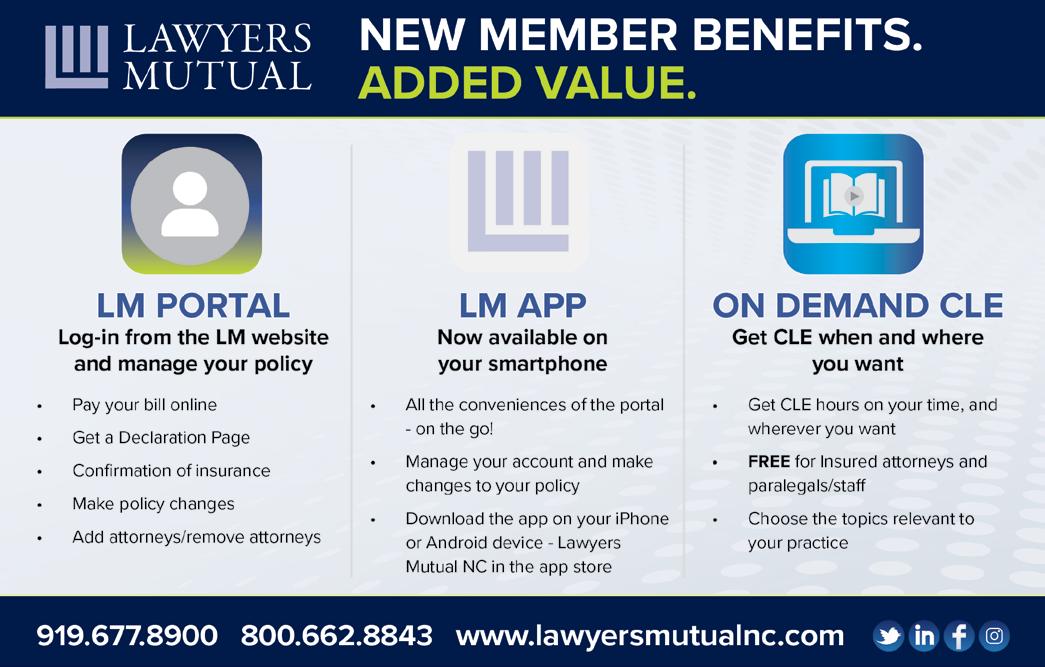
services to underserved communities.

At the community college, Brooks also believes that by increasing her students’ comfort level with technology, they’ll use it to build efficiencies, which might lead to less expensive legal options for clients with limited means.
She’s gathering feedback from her students that will influence how she uses the bots to deliver education going forward, and she believes that AI can make a positive difference in the legal profession and society as a whole.
“I believe if educators are willing to use the power of artificial intelligence for the common good and are committed to that intention, AI could be a dynamic and innovative tool that enhances lives for the better,” she said.

28 SEPTEMBER 2023 | NORTH CAROLINA LAWYERS WEEKLY
◆ 28 SEPTEMBER 2023 CAROLINA PARALEGAL NEWS
Investors Title Legal Team
CAPABLE, COMMITTED, AND INVESTED IN YOUR SUCCESS
• With more than 150 combined years of title experience, our title attorneys and legal support team provide timely underwriting assistance to approved NC real estate attorneys.

• Solution-driven and responsive, our team addresses questions about residential and commercial transactions, helping you provide better service, increase productivity, and mitigate risk.
• Investors Title stays informed about regulatory changes and compliance issues that may affect your legal practice.
• We research, develop, and share best practice solutions for maintaining a secure and compliant real estate office.
• We consistently advocate on behalf of approved attorneys through our work with the Real Estate Lawyers Association of North Carolina (RELANC) and directly with the state Legislature.
• Residential & Commercial Title Insurance

•Commercial Escrow & Disbursement Services
• Trust Account Reconciliation
•§1031 Like-Kind Exchanges
• Investors Title’s in-person and online educational programs are unmatched in terms of quality and relevance.
• We provide thousands of hours of CLE/CPE credit every year to our attorney/ paralegal base.
• Visit invtitle.com/resources/nc for comprehensive resources and to access on-demand content.
800.326.4842 | invtitle.com
INDUSTRY KNOWLEDGE UNDERWRITING EXPERTISE CONTINUING EDUCATION
North Carolina Title Attorneys (left to right): Kevin Joyce, Ryan Wainio, Drew Foley, Kristi Moretz-Icard, Ned Manning, Jimmy Bryan, Marc Garren, and Steve Brown
n Association presents Riddle its Distinguished Paralegal Award
Katie Riddle has received the N.C. Bar Association Paralegal Divison’s Distinguished Paralegal Award. Riddle is a paralegal at Lincoln Financial Group and a second-year evening law student at North Carolina Central University School of Law, where she serves the Student Bar Association as an evening representative and is the secretary for the Trial Advocacy Board.
In 2022, she was awarded the
SEPTEMBER 2023
CAROLINA PARALEGAL NEWS BRIEFS
Outstanding Paralegal Pro Bono Award for her community service and pro-bono work. She was inducted in the North Carolina Pro Bono Resource Center’s Pro Bono Honor Society for Paralegals for 2021 and 2022.
n LM Title Co. hosts Parapalooza event


e LM Title Co. will hold Parapalooza, a daylong seminar for real estate paralegals, title searchers, legal assistants and sta , in the fall.
e event, which o ers ve continuing paralegal education hours, takes place Oct. 10 at the Royal Banquet and Conference Center in Raleigh.
LM Title is a subsidiary of

Lawyers Mutual Liability Insurance Co., which was created to serve the real estate bar in North Carolina. For information, visit lmtitle.com.


n NALS annual meeting honors Wolfe, Friedrich
Traci Wolfe, president of the Legal Sta Professionals of South Carolina, and Alma Friedrich, founder and president of NALS-NC, were honored at the 2023 convention of the National Association of Legal Support Professionals on Aug. 23 at Houston.

Wolfe, a family law paralegal at Burnette Shutt & McDaniel of Columbia, S.C. was a nalist for the NALS Award of Excellence. She has been a NALS member for ve years


and has led the Membership and Marketing Committee. She was the 2022 conference chair when NALS convened in Charlotte. Friedrich is a litigation paralegal at Poyner Spruill in Raleigh. She launched the North Carolina Chapter of NALS in 2021 and serves as its founding president. She received the NALS Volunteer of the Year Award ◆

30 SEPTEMBER 2023 | NORTH CAROLINA LAWYERS WEEKLY 30 CAROLINA PARALEGAL NEWS
Riddle
Wolfe
This online calendaring
entirely
To view the National Academy’s
database of over 1000
litigator-rated mediators & arbitrators, simply visit www.NADN.org/directory Fast Track Scheduling with the Carolina’s Top Litigator-Rated Mediators & Arbitrators Over 20,000 mediations scheduled online by more than 1800 legal sta since 2018 www.NCMediators.org www.SCMediators.org
Friedrich
service is
free, funded by members of the Academy in North and South Carolina.
free
top






















Take the first step today toward building equity in your brand, promoting your excellence and offering your audience more reasons to trust you. Contact EVG, and a member of EVG’s content licensing team will be happy to answer your questions and get you started. Enveritas is the exclusive reprints and logo licensing partner for North Carolina Lawyers Weekly Reprinted with permission of North Carolina Lawyers Weekly 2021 NCLAWYERSWEEKLY.COM BY HEATH HAMACHERly decade. Ian Richardson of Vann Attorneys and Daniel Barker of Barker Richardsexually abused by her father, David Taylor, from the time she was years old until she reported the abuse to her bishop when she was 17. Her mother, Ordinarily, Lawyers Weekly does not divulge the names of victims of sexual abuse. But Richardson said that his client “wanted to shine was child this was improperly swept under the rug by numerous people, including her mother.” “I think, at least for our client, there was something powerful about facing this situation head-on,” Richardson said.said that David admitted to sexually abusing Moriah approximately five times, though Moriah claims she was abused “more times than she can count.” The suit alleged negligence and negligent infliction some of her sisters (David and Toby have 11 children together, Richardson said) were younger, David would call them into his home office “to inspect their breasts.” “Toby told [Child Protective Services] that she knew Richardson said that David served just a few days in jail after pleading guilty to the offenses, time meted out only after he violated probation by contacting Moriah. “Therefore, we asked civil jury to hold both he andDavid and Toby represented themselves at trial. After three-day trial, the jury deliberated about four hours, Richardson said, before finding them liable on Aug. 19 Nevertheless, Richardson said he considers only “halftime” in the case, since David and Toby claim that they are too poor to pay the judgment. “But we have evidence that they own cryptocurrency Jury awards $3.41M to woman sexually abused by father VERDICT REPORT — SEXUAL ABUSE Amount: $3,410,800 Injuries alleged: Emotional distress and post-traumatic stress disorder Moriah Taylor v. David and Toby Taylor Court: Wake County Superior Court Case No.: 18-CVS-12294 Judge: Graham Shirley Date of verdict: Aug. 19 Highest offer: $25,000 Attorneys for plaintiff: Richardson and Ian Richardson of Vann Attorneys, both in Raleigh Attorneys for defendants: Barker AMANDA M. CUBIT Sodoma Law Union Monroe O rewarding. Turning Point, in Union County, serves survivors domestic violence, sexual assault and child abuse. “The mission of this organization is close to my heart as frequently represent people who have been affected by domestic violence,” she says. Cubit, family lawyer with Sonoma Law Union in Monroe, received her law degree from Charlotte School of Law in 2012 after graduating from Clemson University with Bachelor of Arts degree in political science. She started her career practicing with Legal Aid of North Carolina. She has happy memories of growing up near Philadelphia, where she enjoyed celebrating birthdays, holidays and important milestones with her parents, two younger siblings and extended family. “Family has always been the most important part of my life, and would not be was young. “There are many questions would love to ask him, and stories would love to hear now that am older,” she says. During the COVID-19 lockdown, Cubit became enthralled with the show “Below Deck” on the Bravo channel. She still hooked and rarely misses an episode. “My brother captain of yacht, and the show gives me look into how he spends his days,” she says. “It goes without saying that we lead very different lives.” RISING STARS 2021 Earned it... Promote it... You’ve now Licensing | Awards | Reprints
In recognition of the ever-growing importance to deliver news in the most engaging way, we’ve revamped nclawyersweekly.com. You’ll find a more focused approach to today’s top stories and improved navigation, resulting in higher engagement on our site. This revamp also brings new advertising and marketing opportunities that connect businesses to decision-makers in the industry.


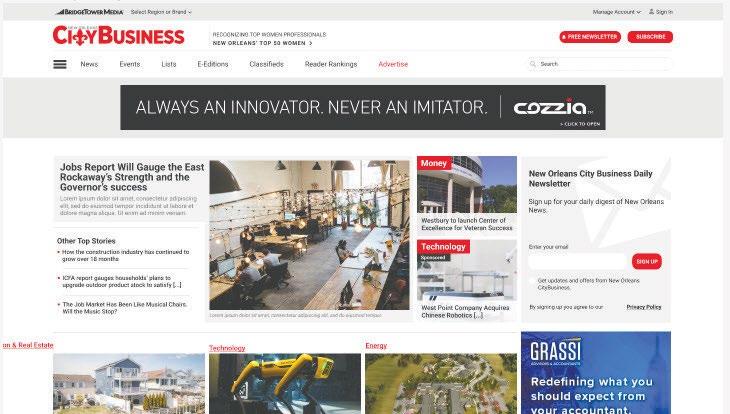



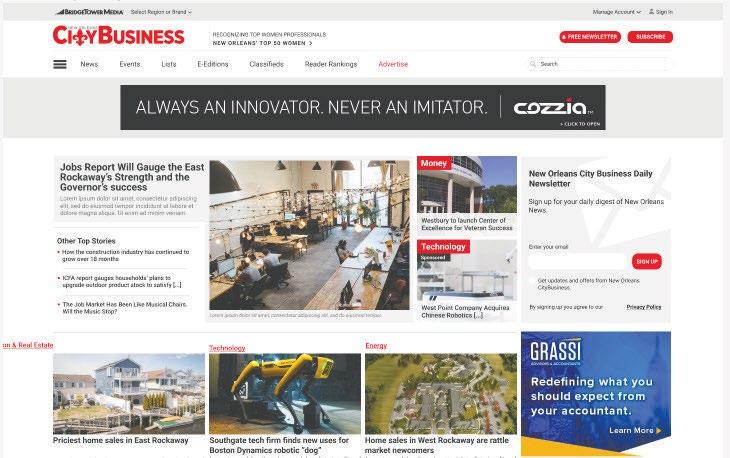
New Look. New Experience. Same Credible News. More News. More Views. More Exposure.
Brand’s
More Reasons To Get Your
Message Visible Now.
THE ALL NEW NORTH CAROLINA LAWYERS WEEKLY
North Carolina Lawyers Weekly Daily Newsletter Sign up for your daily digest of North Carolina Lawyers Weekly







































































































 B y V alecia m c d owell and R aquel m acg R ego R P ea R kes
B y V alecia m c d owell and R aquel m acg R ego R P ea R kes








































